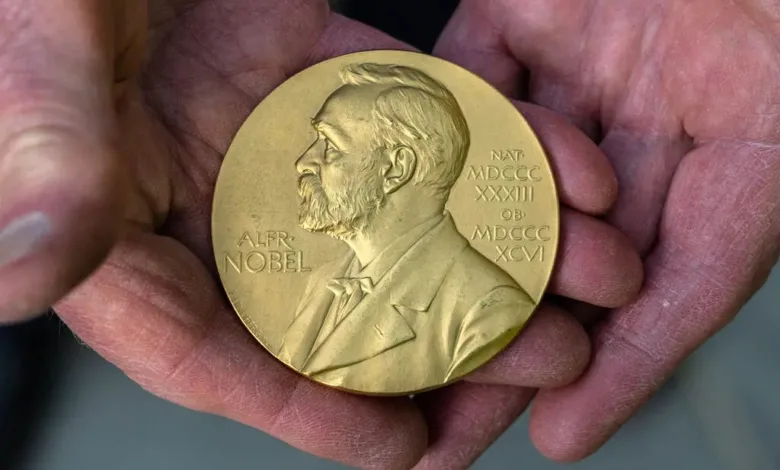
Economists Propose Unconventional Candidate for Nobel Prize in Economics
In a thought-provoking discussion, economists Tyler Cowen and Alex Tabarrok have stirred the pot with their unexpected nomination for this year’s Nobel Prize in Economic Sciences. Speaking on The Marginal Revolution Podcast, these influential economists ventured beyond traditional economic figures, suggesting Vitalik Buterin, the co-founder of Ethereum, for his groundbreaking contributions to the cryptocurrency sector.
Rethinking the Nobel Prize: A Bold Proposition
During their conversation, Cowen and Tabarrok reflected on historical Nobel Prize selections, questioning past choices and pondering what criteria should guide future nominations. Cowen put forward Vitalik Buterin as an unconventional nominee, highlighting his significant impact on the evolution of cryptocurrency. Unlike conventional economists, Cowen argues, Buterin has made tangible contributions to monetary economics through the development and advancement of Ethereum, laying the groundwork for the "theory of crypto."
Tabarrok, echoing his co-host’s sentiments, pointed out the growing interest among economists in the crypto industry due to its increasing influence on the global economy. He emphasized that the foundational elements of cryptocurrency were crafted by computer scientists, making it a unique intersection of economics and technology. According to Tabarrok, cryptocurrencies like Bitcoin and Ethereum exemplify "applied mechanism design," demonstrating real-world applications that seemed unattainable just a few years ago.
Cowen elaborated on Buterin’s achievements, questioning what more would be needed for Buterin to be considered a viable candidate for the prize:
"Vitalik built a platform, created a currency, you could say, refuted Mises’ regression theorem in the process, obviously following in the footsteps of Satoshi, but my goodness, what does someone have to do to get a Nobel Prize?"
The Case for Vitalik Buterin’s Nobel Recognition
The economists emphasized Ethereum’s substantial market impact, with a market valuation reaching hundreds of billions of dollars. As the leading blockchain by total value locked (TVL), Ethereum boasts a dominance of 57.4%, representing a staggering $45.9 billion. Furthermore, ETH, the native cryptocurrency of the Ethereum network, commands a market capitalization of nearly $293 billion, underscoring its pivotal role in the crypto ecosystem.
Tabarrok further bolstered Buterin’s candidacy by highlighting his continuous efforts to innovate Ethereum’s mechanism design, particularly the transition from a Proof-of-Work (PoW) to a Proof-of-Stake (PoS) framework. This monumental shift parallels the complexity and precision of changing a car tire while driving, illustrating the technical prowess and strategic foresight involved in Ethereum’s evolution.
Cowen reinforced the argument by noting Buterin’s substantial contributions to monetary economics. He posited that Buterin’s insights surpass those of many traditional economists, marking him as a significant figure worthy of Nobel consideration.
Beyond Economics: Buterin’s Philanthropic Endeavors
In addition to his technological and economic contributions, Buterin is recognized for his philanthropic efforts. His generous crypto donations, amounting to millions of dollars, have supported various charitable causes, reflecting a commitment to leveraging cryptocurrency for social good.
The discussion briefly touched upon the enigmatic figure behind Bitcoin, Satoshi Nakamoto. Tabarrok suggested that Nakamoto, if alive, would be a strong contender for a Nobel Prize. However, he expressed skepticism about Nakamoto’s eligibility due to the lack of identifiable information. Cowen, while disputing his colleague’s theory about Nakamoto’s status, concurred that anonymity poses a significant barrier to awarding the prize.
As Ethereum (ETH) continues to trade robustly, priced at $2,435 in recent charts, the conversation about recognizing pioneers like Buterin in prestigious economic circles gains momentum. The economists’ proposition challenges traditional boundaries, urging a broader consideration of contributions that bridge technology and economics.
[This article positions itself within a broader narrative about innovation in economic sciences, aiming to resonate with both academic and technological audiences.]







